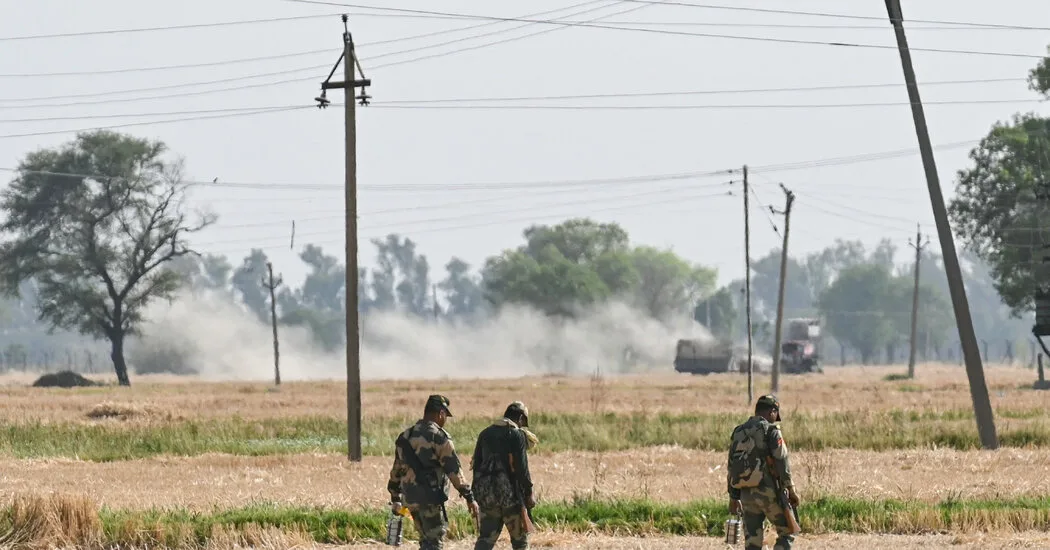

The strikes came after an attack by militants killed more than two dozen civilians in Indian-administered Kashmir and are an intensification of a conflict between two nuclear powers.
India said early Wednesday that it had conducted strikes on what it called “terrorist infrastructure” in Pakistan, two weeks after an attack by armed militants killed more than two dozen civilians in Indian-administered Kashmir.
Residents of Muzaffarabad, the capital of the Pakistani part of the disputed territory of Kashmir, also reported hearing jets flying above. They said that a site in a rural area near Muzaffarabad that was once used by Lashkar-e-Taiba, a militant group based in Pakistan, appeared to have been targeted in the strikes.
A spokesman for the Pakistani Army said that two other places had also come under attack. One was Bahawalpur, in Punjab Province, the site of a religious seminary associated with Jaish-e-Mohammad, another Pakistan-based militant group; and the other was Kotli, a city in Pakistan-administered Kashmir.
The Pakistani military said that Indian planes did not enter Pakistan’s airspace in conducting the attacks.
The blasts came 15 days after militants opened fire on a group of tourists in the Indian-administered region of Kashmir on April 22, killing 26 and injuring more than a dozen others.
The massacre was one of the worst attacks on Indian civilians in decades, and India was quick to suggest that Pakistan, its neighbor and archenemy, had been involved. The two nuclear-armed countries have fought several wars over Kashmir, a region that they share but that each claims in whole.
The Pakistani government has denied involvement in the attack, and India has presented little evidence to support its accusations. Still, soon after the onslaught, India announced a flurry of punitive measures against Pakistan, including threatening to disrupt the flow of a major river system that supplies it with water.
In Kashmir, Indian forces began a sweeping clampdown, arresting hundreds, as they continued their hunt for the perpetrators. And India and Pakistan have repeatedly exchanged small-arms fire along the border in the days after the attack.
But the strikes by India are an intensification of the conflict that runs the risk of setting off an all-out war that could be difficult to contain. The Pakistani government earlier vowed to respond in kind to any Indian aggression, and both nations have the capacity to inflict tremendous damage.
Anupreeta Das contributed reporting.



